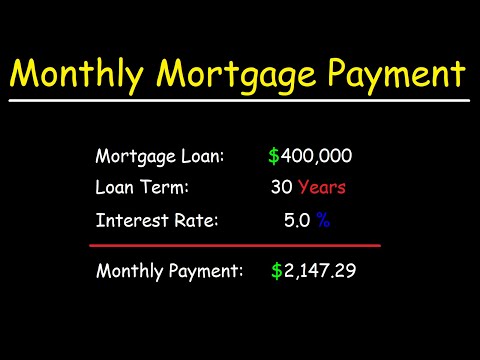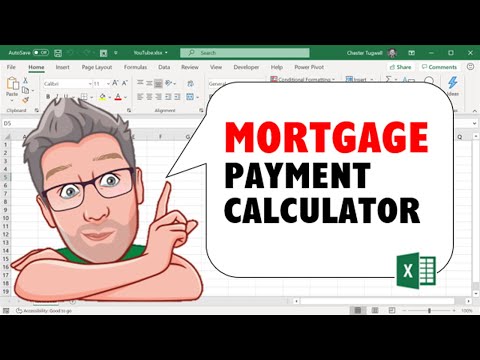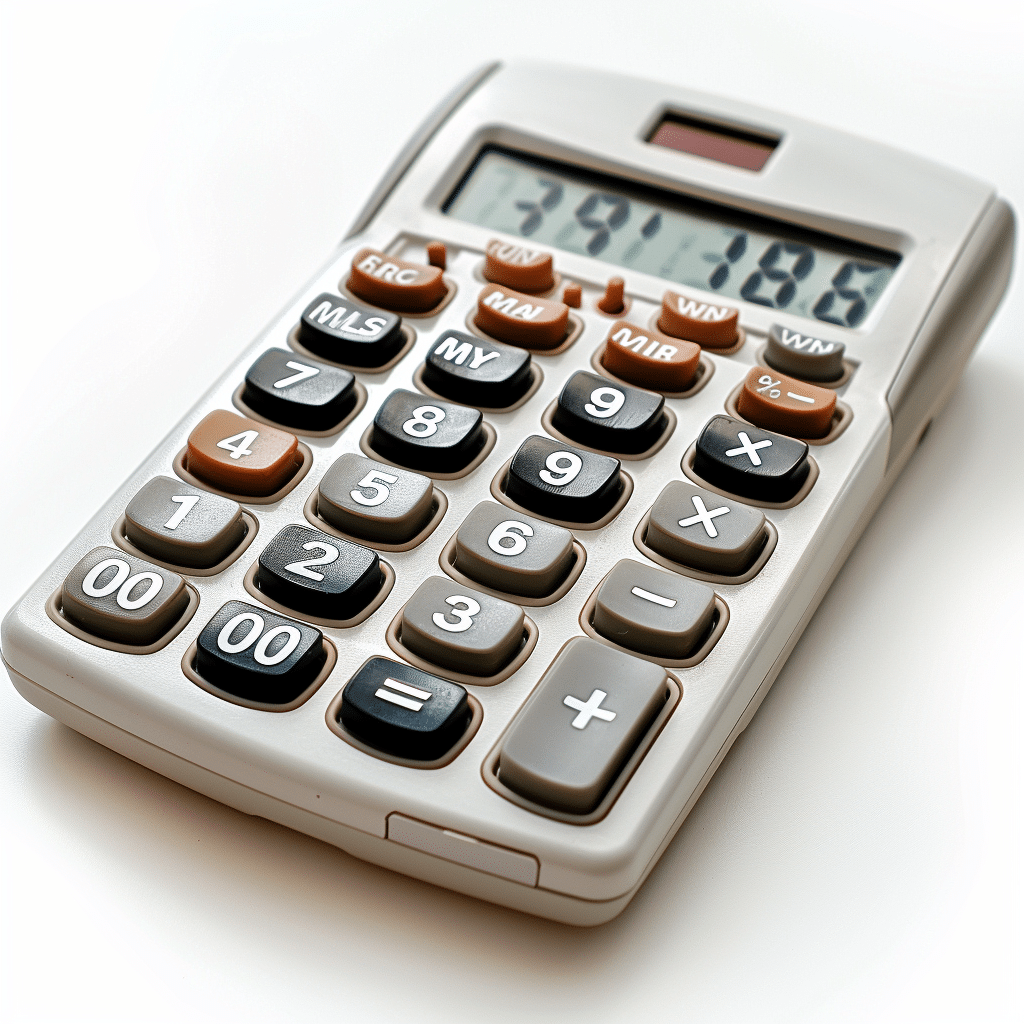Understanding the Home Monthly Payment Calculator
A home monthly payment calculator is an essential tool in the financial planning arsenal for prospective homeowners. It enables you to estimate your monthly mortgage payments by considering crucial factors like loan amount, interest rate, property taxes, and homeowners insurance. By inputting these variables, you can get a clearer picture of your financial commitments and make more informed decisions.
For instance, calculating the monthly cost of a $500,000 mortgage at a 7.1% interest rate over a 30-year term results in a monthly payment of $3,360.16. That’s a significant commitment, totaling $40,321.92 annually in combined principal and interest payments. Knowing these details ahead of time can help you budget effectively and avoid financial surprises.

Top 7 Home Monthly Payment Calculators for 2024
1. Bankrate Home Monthly Payment Calculator
Bankrate is a trusted name in finance, known for its comprehensive and user-friendly tools. Their home monthly payment calculator stands out for its detailed breakdown of principal, interest, taxes, and insurance (PITI).
Unique Insight: Bankrate’s calculator includes prepayment options that allow you to see the impact of additional payments on the mortgage’s overall term and interest. This feature is ideal for those looking to optimize their loan payoff strategies.
2. Zillow Mortgage Calculator
Zillow has transformed real estate with its extensive listings and market data. Their home monthly payment calculator integrates seamlessly with Zillow’s home search, providing real-time estimates directly on property listings.
Original Analysis: The integration of real-time property data with Zillow’s calculator offers highly accurate and current estimates. This immediacy is invaluable for buyers looking to make quick, informed decisions in a fast-paced market.
3. NerdWallet Home Payment Calculator
NerdWallet provides a balance of simplicity and depth in its home monthly payment calculator. It caters to both first-time buyers and seasoned investors, allowing for calculations of various loan types and down payment scenarios.
Research-Based Perspective: NerdWallet’s user-friendly interface simplifies complex calculations, making it accessible to users with different levels of financial literacy. Their embedded educational resources help demystify mortgage jargon, empowering you to make well-informed decisions.
4. Quicken Loans Mortgage Calculator
Quicken Loans’ home monthly payment calculator is integrated with their broader suite of financial tools. Praised for its speed and precision, it often provides estimates within seconds.
Detailed Analysis: The Quicken Loans calculator includes a credit score range, offering tailored estimates that highlight the impact of your credit score on potential mortgage payments. This feature can motivate users to improve their financial health by better understanding the significance of credit scores.
5. Redfin Mortgage Calculator
Redfin’s home monthly payment calculator is integrated with its property listings, offering user-friendly design and precise estimates that include local property taxes and HOA fees.
In-Depth Information: Redfin’s calculator leverages local data, providing hyper-localized monthly payment estimates. This precision is crucial for buyers in areas with significant tax or fee variations, removing potential financial surprises.
6. Trulia Mortgage Calculator
Trulia’s home monthly payment calculator is a powerful tool for comparative analysis. Users can input multiple loan scenarios to compare different down payments, interest rates, and loan terms side-by-side.
Unique Perspective: Trulia’s comparative functionality enables a thorough assessment of various financial scenarios, helping buyers to visualize the long-term impact of different loan structures and payment plans.
7. MortgageCalculator.org
MortgageCalculator.org offers a free, highly customizable tool suitable for detailed mortgage planning. Users appreciate its advanced features and comprehensive detail.
Comprehensive Insight: This calculator stands out for its high level of customization, including fields for PMI, HOA fees, and annual property appreciation or depreciation. This level of detail provides a holistic financial forecast, making it a go-to tool for detail-oriented planners.

| Mortgage Amount | Loan Term | Interest Rate (APR) | Monthly Payment | Annual Payment | Total Payment Over Loan Term |
| $300,000 | 15 years | 6% | $2,531.57 | $30,378.84 | $455,682.60 |
| $300,000 | 30 years | 6% | $1,798.65 | $21,583.80 | $647,514.00 |
| $500,000 | 30 years | 7.1% | $3,360.16 | $40,321.92 | $1,209,657.60 |
Why Choosing the Right Home Monthly Payment Calculator Matters
Selecting the right home monthly payment calculator can significantly impact your home-buying journey. Each calculator offers unique features and varying levels of detail. Understanding your specific financial needs and literacy level is key to making an informed choice. Whether you need real-time data integration like Zillow and Redfin, or advanced financial planning tools like Bankrate and MortgageCalculator.org, the right tool can simplify the home-buying process and provide peace of mind.

Future Trends in Home Monthly Payment Calculators
Advancements in AI and machine learning are set to revolutionize home monthly payment calculators in 2024 and beyond. These technologies promise enhanced accuracy and user interfaces, offering even more personalized and precise estimates.
Emerging Analysis: Some platforms are already integrating predictive analysis to allow users to see potential future scenarios based on market trends. Additionally, further integration with financial wellness apps is expected to provide a more comprehensive overview of financial health, extending beyond mere mortgage payments.

Final Thoughts on Home Monthly Payment Calculators
As the real estate landscape evolves, the importance of user-friendly home monthly payment calculators remains high. Whether you’re a first-time buyer or a seasoned investor, these tools offer the clarity and detailed insights needed to make informed financial decisions. Don’t overlook the potential of these calculators; they are invaluable assets for navigating the intricacies of mortgage planning.
For more information on making informed financial decisions, check out our article on How To calculate rate Of return.

Remember to explore our own home mortgage loan calculator, home payment calculator, and house loan payment calculator at Mortgage Rater to simplify your mortgage planning journey today.
Home Monthly Payment Calculator: Fun Trivia and Interesting Facts
A Calculator with a Fascinating History
Ever wonder about the history behind the tools we use every day? The humble home monthly payment calculator, which has become indispensable for anyone buying a home, has links to some really quirky stories. Did you know its roots can stretch as far back as military innovation? At Aberdeen Proving Ground, cutting-edge tech developments have often paved the way for modern conveniences, including financial calculators.
Unusual Cultural Connections
Believe it or not, the comfort of using a home monthly payment calculator has entertaining cultural intersections. Take the infamous Borat Mankini for example. What does it have to do with calculators? Both became front-page phenomena around the same time, embedding themselves into our cultural fabric in unexpected ways. Just as the mankini highlighted peculiar fashion trends, online calculators transformed financial planning. They’re both testaments to how swiftly trends can shape our lives.
Pop Culture Parallels
Moving on to the realm of sports and heroes, fans of online calculators might be surprised to see parallels with figures like Reo Mikage. Just like how Mikage’s precision on the field inspires awe, home monthly payment calculators have become champions of budget precision for homeowners. The reliability of these tools is what keeps them in the game, helping you make those big decisions with confidence.
The key takeaway here isn’t just about the technical reliability of your home monthly payment calculator, but also its surprising touchpoints with culture and history. It’s these connections that make it more than a tool—more like an unsung hero in our financial toolkit. And who would have guessed that even an ethical dilemma with a Gaither Missouri teacher or historical tidbits can shed light on how we perceive and rely on everyday objects?
Making these cultural connections helps us appreciate the significance of items we might otherwise take for granted. Your home monthly payment calculator is not just a static gadget; it’s a pivotal player with a fascinating past, a quirky present, and a crucial role in financial decision-making.

How much house can I afford if I make $7,500 a month?
If you’re making $7,500 a month, you might afford a house that costs around $300,000 to $450,000, depending on your other debts and expenses. Lenders usually suggest keeping your mortgage payment to about 28-30% of your gross income.
How much is the monthly payment on a $400 000 house?
For a $400,000 house, the monthly mortgage payment would depend on the interest rate and loan term, but with a 30-year loan at about 6% APR, it’s approximately $2,398.20. Don’t forget to add property taxes, insurance, and possibly PMI.
How much is a monthly payment on a $300 K house?
The monthly payment on a $300,000 mortgage, assuming a 6% APR, is around $2,531.57 for a 15-year term and $1,798.65 for a 30-year term, before including escrow for taxes and insurance.
What is the average monthly payment for a $500000 house?
A $500,000 house with a 30-year mortgage at a 7.1% interest rate would have a monthly payment of roughly $3,360.16. Annually, that totals $40,321.92 for principal and interest alone.
Can I afford a 200k house on a 70K salary?
With a $70K salary, you might be able to afford a $200,000 house. Typically, lenders like to see your mortgage payment not exceed 28-30% of your gross monthly income, equating to around $1,700-$1,750.
Can I afford a 300k house on a 50k salary?
On a $50K salary, affording a $300K house would be challenging. Your mortgage payments might be too high relative to your income, as lenders generally prefer your monthly mortgage payment to be no more than 28-30% of your gross monthly income.
How much income do you need to qualify for a $400 000 mortgage?
To qualify for a $400,000 mortgage, a ballpark figure for necessary annual income is around $80,000 to $100,000, depending on your other debts and financial responsibilities. Lenders will look at your debt-to-income ratio as well.
How much is a monthly payment on a $350 000 house?
A $350,000 house would have a monthly mortgage payment of approximately $2,091.68 for a 30-year loan term at around 6% APR. This doesn’t include property taxes, homeowners insurance, or possible PMI.
How much income do you need for a 350K house?
For a $350K house, you’d likely need an annual income of around $70,000 to $90,000, assuming you don’t have a lot of other debts. Banks typically want your mortgage payment to be 28-30% of your gross monthly earnings.
What credit score is needed for a 300K house?
A decent credit score for a $300K house is typically around 620 or higher. Higher credit scores can help you secure better interest rates, reducing your monthly payments.
Can I afford a 300K house on a 60k salary?
With a $60K salary, affording a $300K house might be tough since lenders often suggest your mortgage should be no more than 28-30% of your income—around $1,400-$1,500 a month. A $300K loan would likely exceed this threshold.
How much income do I need for a 300K mortgage?
To comfortably afford a $300K mortgage, lenders generally look for an annual income of around $60,000 to $75,000, assuming your other debts are minimal and your credit is solid.
What credit score is needed to buy a $500,000 house?
For a $500,000 house, a credit score of 620 or higher is often needed, though a higher score could get you better terms. Good credit makes a big difference in securing a favorable interest rate.
How much income do I need for a $500,000 mortgage?
To qualify for a $500,000 mortgage, you typically need an annual income of around $100,000 to $125,000, depending on your other debts and expenses. Lenders will consider your debt-to-income ratio.
How much money do you need to put down on a $500,000 house?
Most lenders prefer a down payment of 20% for a $500,000 house, which would be $100,000. This helps avoid private mortgage insurance (PMI), but some programs might require less.



